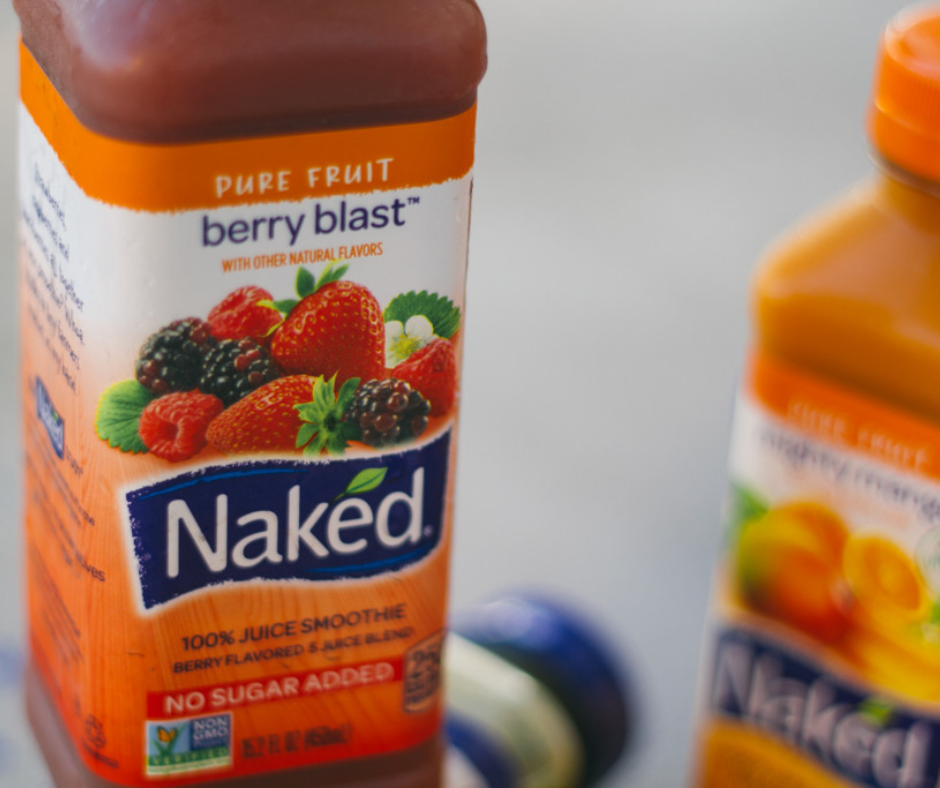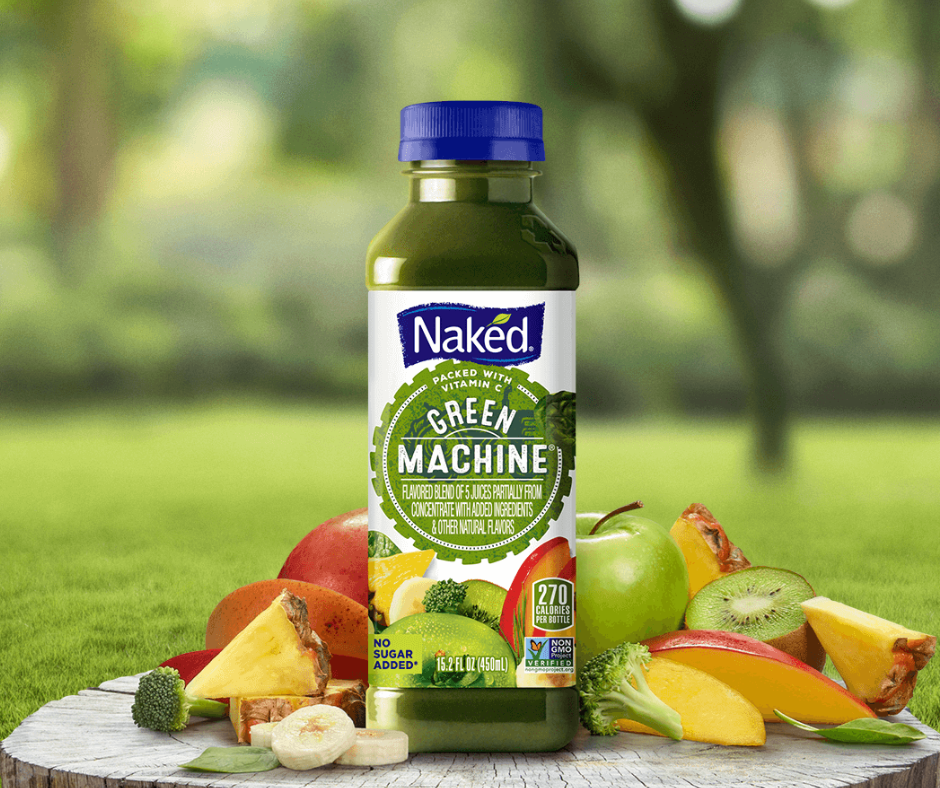Is Naked Juice Healthy? Uncover the Nutritional Truth!
Naked Juice can appear healthy due to its branding, but its high sugar content may be a concern. It lacks the fiber found in whole fruits and is not a low-calorie option.
Exploring the health aspects of popular beverages, Naked Juice often stands out on store shelves with its array of vibrant colors and promises of pure fruit ingredients. This line of smoothies and juice blends markets itself as a healthful choice for those seeking a nutrient-packed drink.
Containing a mix of fruits and sometimes vegetables, these juices provide vitamins and antioxidants without the use of added sugars or preservatives. However, the nutritional value of Naked Juice is a subject of debate. Critics point out that the lack of fiber and the high concentration of natural sugars from fruits might not make these juices the best option for those monitoring their sugar intake or trying to manage weight. It’s essential to scrutinize the product label to understand the nutritional content fully and consider how it fits into an overall balanced diet.
The Lure Of Naked Juice
Naked Juice presents itself as a nutrient-packed beverage choice. With sleek bottles and bold colors, it captures attention on shelves. Clever marketing strategies position it as a health-conscious product. Yet, it’s essential to look beyond the packaging.
Many consumers are drawn to its promise of natural ingredients and vitamins. The vibrant array of juices suggests a convenient way to boost fruit and vegetable intake. This appeals to busy individuals seeking quick nutrition solutions. Transparency about contents is key for informed choices.

Ingredients Deconstructed
Naked Juice drinks boast a significant fruit and vegetable content. These juices typically blend a variety of whole fruits such as apples, bananas, and berries. The brand also incorporates vegetables like kale and beets for added nutrition.
Concern arises with the added sugars and lack of fiber. Unlike whole fruit, juices do not provide fiber. The brand claims “no added sugar”, yet natural sugars are high. For example, “Pomegranate Blueberry” has around 34 grams of sugar per serving.
Preservatives in Naked Juice are minimal. Ascorbic acid and tocopherols help maintain freshness and color. Still, these additives keep the juice shelf-stable far beyond natural juice.
Nutritional Breakdown
Naked Juice offers various flavors, each with a unique nutritional profile. A typical 15.2-ounce bottle contains around 250 to 320 calories. Weight management often involves monitoring caloric intake. Regular consumption may lead to calorie surplus without proper planning.
| Vitamin | Count |
|---|---|
| Vitamin C | Ample |
| Vitamin A | Generous |
| Vitamin E | Present |
| Potassium | Abundant |
These juices are often fortified with vitamins and minerals. Important ones include Vitamin C, Vitamin A, Vitamin E, and Potassium. One bottle can deliver a substantial portion of the recommended daily intake for these nutrients, supporting overall health.
Health Claims Vs. Reality
Many people think Naked Juice is very good for your health. Ads show it as full of fruits and vegetables. But, some experts say it’s not that simple. They suggest looking at the sugar content and nutritional information. Nutrients in whole fruits are not the same when they’re juiced. A juice might miss fiber and other important benefits. Research tells us whole fruits are often better. Before you drink, always check the label. It helps to know what you are really drinking. This is important for keeping a healthy body.
| Item | Content in Naked Juice |
|---|---|
| Sugar | High compared to whole fruits |
| Fiber | Usually less than in whole fruits |
| Vitamins | Present but missing fiber |
Alternatives To Naked Juice
Whole Fruits vs. Juices: Choosing whole fruits over juices is a smarter choice. Whole fruits offer fiber that regulates digestion. They limit sugar intake, unlike concentrated juices. Plus, whole fruits carry essential nutrients and vitamins. Juices, especially like Naked Juice, may contain added sugars and calories. This is not good for health.
Other Healthy Beverage Options: Plenty of drinks are better for you than juice. Think of water, always the healthiest pick, or green tea with antioxidants. Herbal teas provide calming effects. Coconut water is another choice, filled with electrolytes. For milk lovers, try almond or soy milk. They are low in sugar. Also, consider smoothies with lots of veggies. Don’t forget to skip the extra sweeteners!

Making Informed Choices
Understanding the health value of Naked Juice involves examining the labels. Key nutrients and their amounts are listed here. It’s crucial to notice the sugar content often mirrors that of sugary sodas. These juices lack fiber compared to whole fruits.
Integrating Naked Juice into your diet means balance. Ensure you eat various healthy foods. Vegetables, whole grains, and protein should accompany your juice choice. This practice ensures you receive all essential nutrients without overdoing the sugar.

Frequently Asked Questions On Is Naked Juice Healthy
What Nutrients Are In Naked Juice?
Naked Juice is rich in vitamins and minerals. It generally contains high levels of Vitamin C and potassium. However, the exact nutrients can vary based on the specific flavor and variety of the Naked Juice product.
Does Naked Juice Include Added Sugars?
Most Naked Juice products do not have added sugars. The sweetness in Naked Juice comes from the natural sugars found in the fruits and vegetables used to make the juice.
Can Naked Juice Aid Weight Loss?
Naked Juice can be a part of a weight loss diet if consumed in moderation. However, its high natural sugar content means it’s best to balance it with low-calorie foods and regular exercise.
How Processed Is Naked Juice?
Naked Juice is pasteurized for safety and has no preservatives, but it is more processed than whole fruits and vegetables due to juicing and bottling.
Conclusion
Selecting healthier drink options is vital for maintaining wellness. Naked Juice may provide nutrients, but it’s crucial to consider sugar content. Balance and moderation are key. For those seeking to optimize their health, evaluating all beverage choices against nutritional needs is a smart move.
Always prioritize whole foods and stay informed.